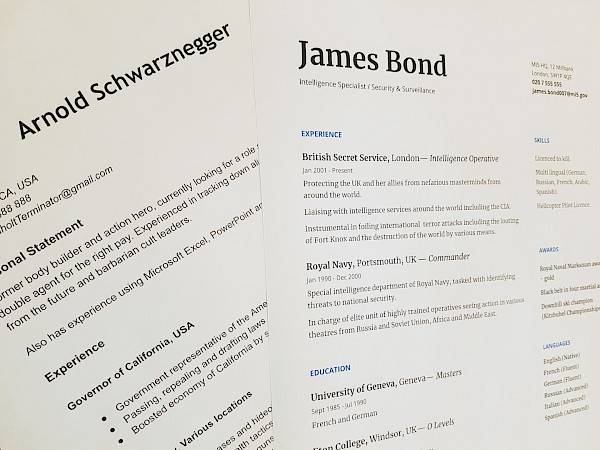Episode transcript The transcript is generated automatically by Podscribe, Sonix, Otter and other electronic transcription services.
Hello
Speaker 1 (4s): Hello, everybody. Welcome to the five minutes PM. Podcast Today. I will continue on the podcast about your resume or CV or your bio. Last week, I discussed general information about some formatting guidelines, font size formation. How do you put your student background in your CV? How you should put your credentials and certification, like PMP, like PG and be like CAPM.
And I finish at explaining how to insert your courses in your experience in all the courses. And I explained that how to do that, putting only the relevant ones. And Today, I like to discuss with you how do you insert your professional experience management professional experience? Usually, everybody puts the company names in chronological order from the most recent two, the oldest ones, and tries to explain the name of the company and what you did, then maybe your position.
One thing that I like to explain, putting the name of the company and the position is not enough, is not enough. If this is the Bork of your bike, that you need to explain more because I wanted to understand what did you do in X, Y, Z company as a project manager, don't put general statements like pros at Manager because different companies, they see project management in different ways. So maybe in company ABC, they use this for the financial and viability analysis, people at analysis or the other one is for scheduling and cost.
I saw the company is using project managers, only four risk management. So you need to explain, this is your piece of art advertisement. What I like to suggest you do is to put the company name, but the starting and ending date of that job, put the name of its position and explain below what I did you do there. What relates that to project management work and try to focus this on maybe the nine knowledge areas or the concepts of the portfolio.
So you can explain in this company, I participate in 11 different projects in the oil field from an all your platform to an oil refinery. And I work mostly in the financial aspect, doing the ability studies, doing cash flow and risk management related to cost Don So. I will understand when I read that you are a financial specialist in project management in the order line, you can put, I work at, for Z, Z, Z company to company.
As a project manager in this company, I work as an assistant project manager, do a very large complex project of building the new airport in a big, big city. And what I did there, I did basically negotiation. I strolled leadership skills, dealing with people, conflict management, talking about conflict management and a lot of people, the kink that, Oh, I need to put on Greg thinks in my mind, I need only success things.
Let me tell you history. A couple of years ago, he was interviewing the candidates for a position in a big bank, and he was introducing himself, and that was reading his bio. And I was reading, reading, reading at a time in the middle. I stop it. I started asking questions, and they said, I did that. I did that. Everything went throughout. I sold it, all of this, all of that. And then I stopped and said, my friends, you are not running for God's position.
You are running for a project manager position. What do I want to tell you about that? If you never fail the one to hire you? Why? Because I want to hire normal people with problems. Maybe if you never failed, or you are a God, or if you were playing in the very low profile file environment of project management, extremely low complexity, even you're a sailor, it's relevant for your bio.
You can say I did that. And I participate in that project. That was a complete failure in that project. I learned risk management. I learned it. Leadership, conflict management, crisis management crisis. You put the word crisis because I'm hiring normal people. I'm hiring people to handle him, to deal with problems. I am not looking to hire perfect people that are not even aware that the problem exists.
This is the point. So put your bio with your real experience. And for sure, don't lie. I don't like it. And why, if I'm explaining this, for sure, there are many ethical reasons for that, but on the operational side, you will, okay. You will differentiate yourself because you, the more experienced than you read a little bit, we have, but during the interview, it to be a disaster because they will interview you a new, you will lose two things.
First, the job, second, second, the credibility, because maybe you lose that job, but in one month, two months, they will start telling you what, again, that does is an opportunity for you and invite you for another interview. But if you lose your credibility, you lose everything. You lost everything. You lost that client. You lost that company. And that opportunity. This is really something very important. So be sharp.
Remember your CV; your resume is your folder. It is your advertisement piece. Be honest, be sharp. Advertise yourself as someone that can contribute to the company and leverage new standards and project management. This is what all contractors are looking for. I hope you enjoyed this. Do podcasts and have a wonderful week. Can see you next week with another five minutes PM. Podcast bye.

